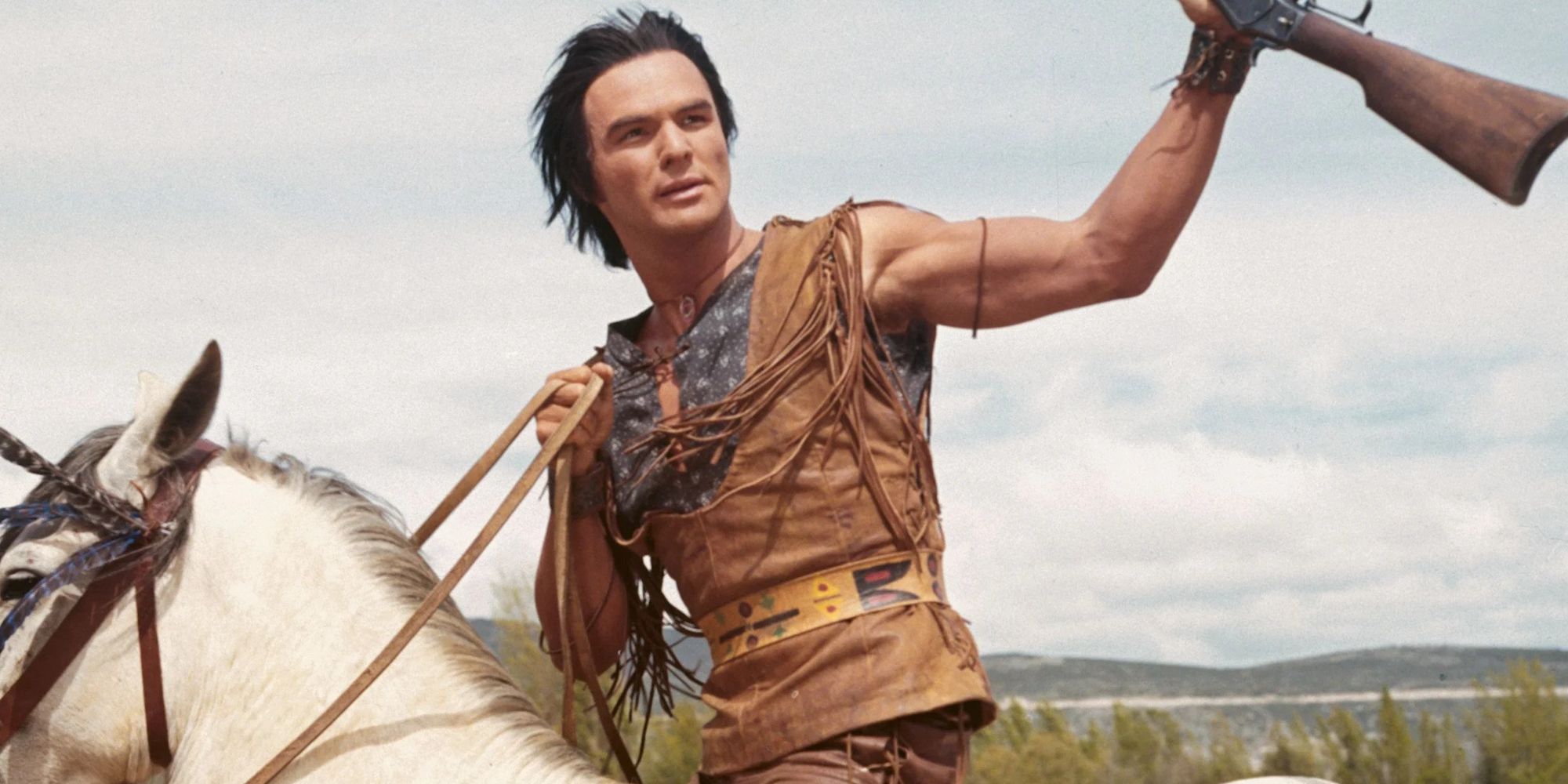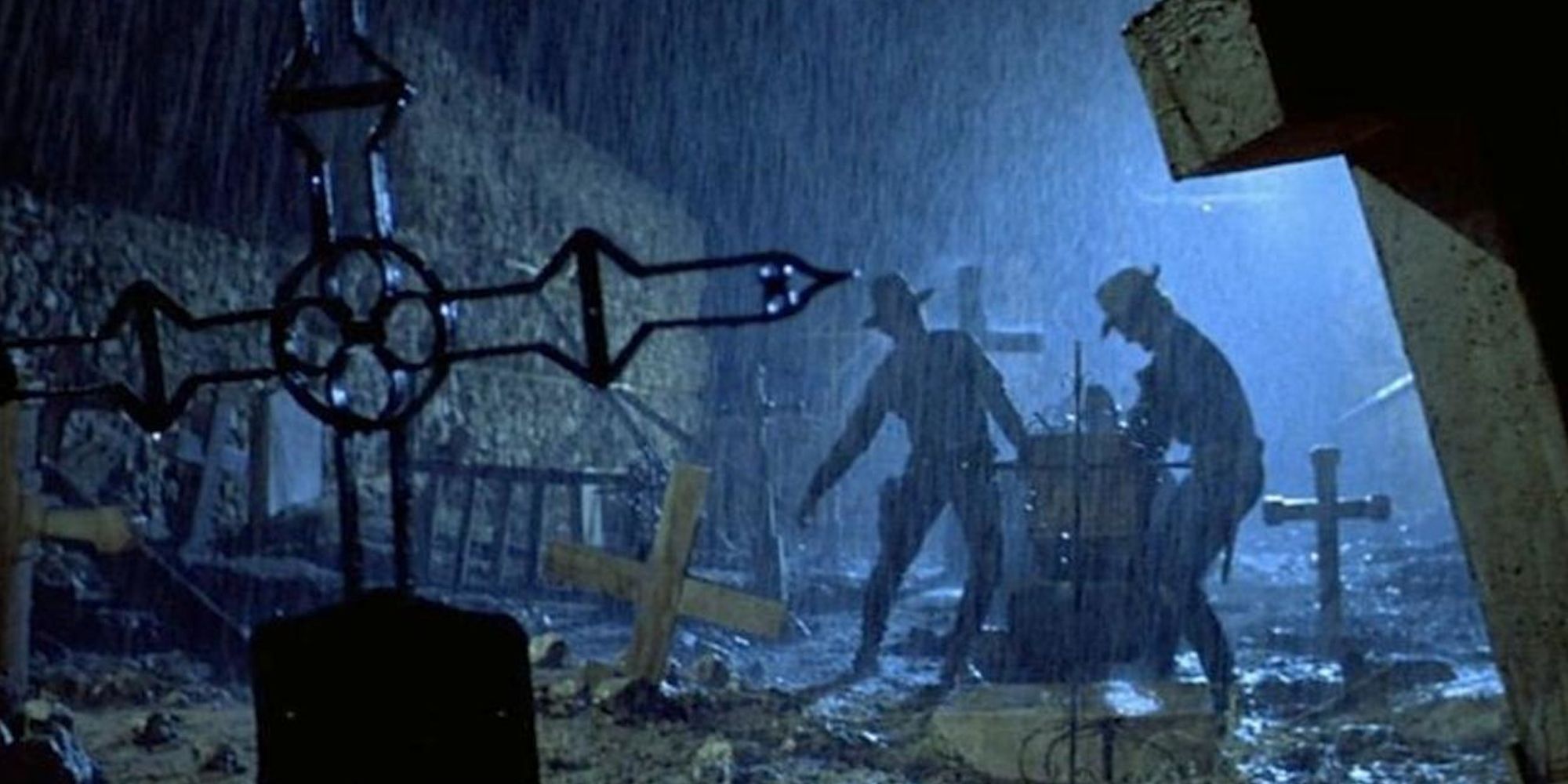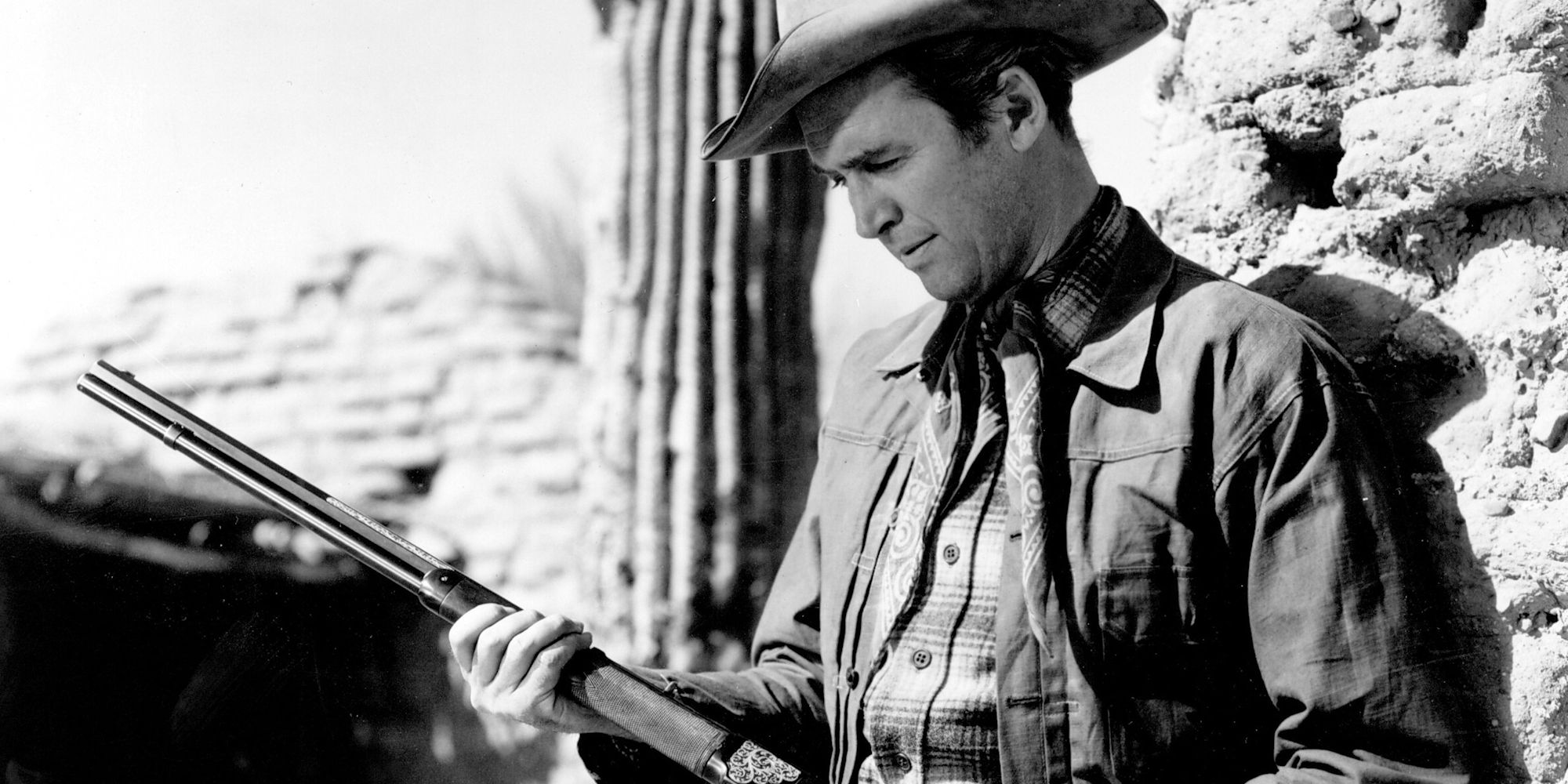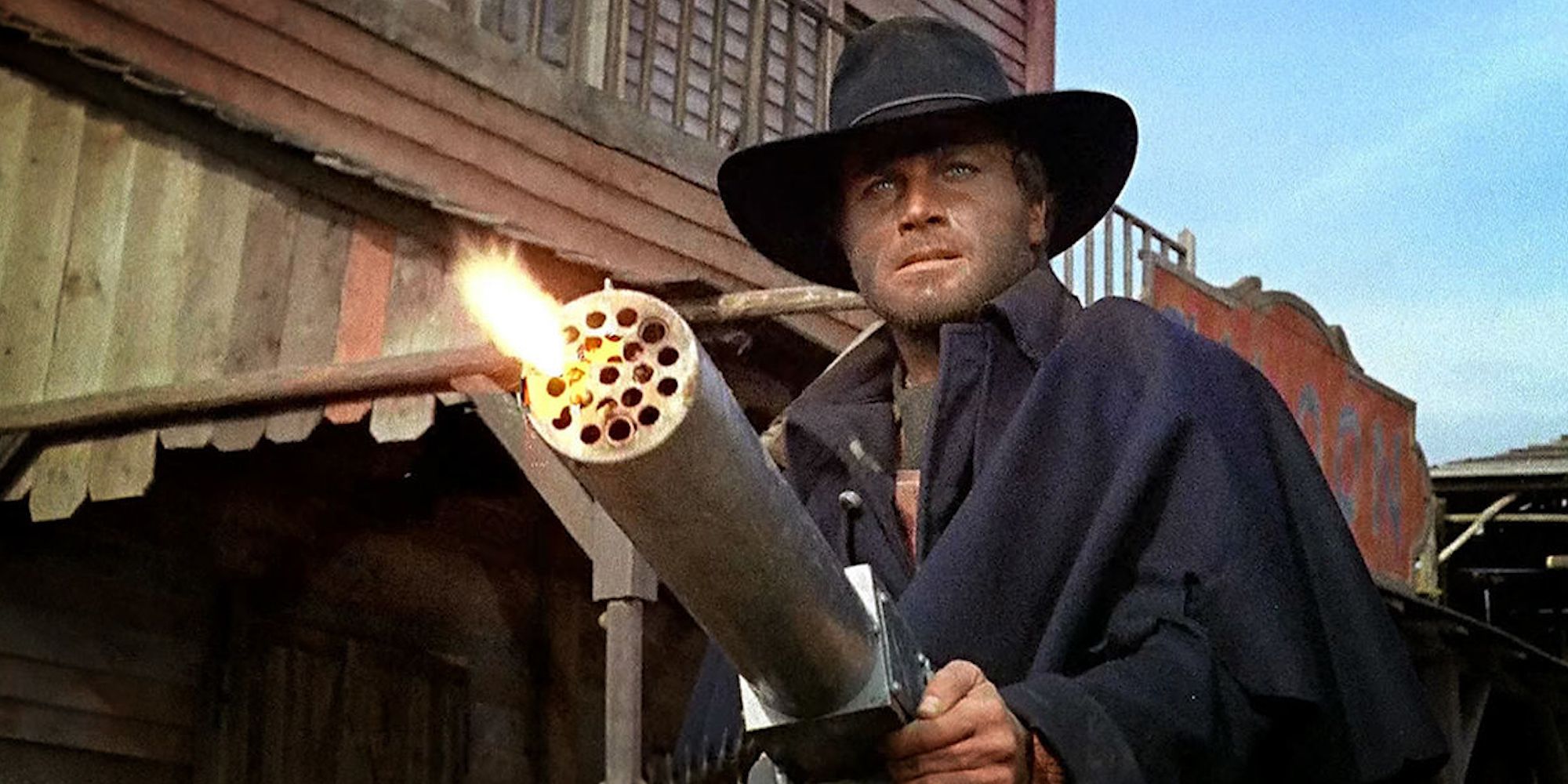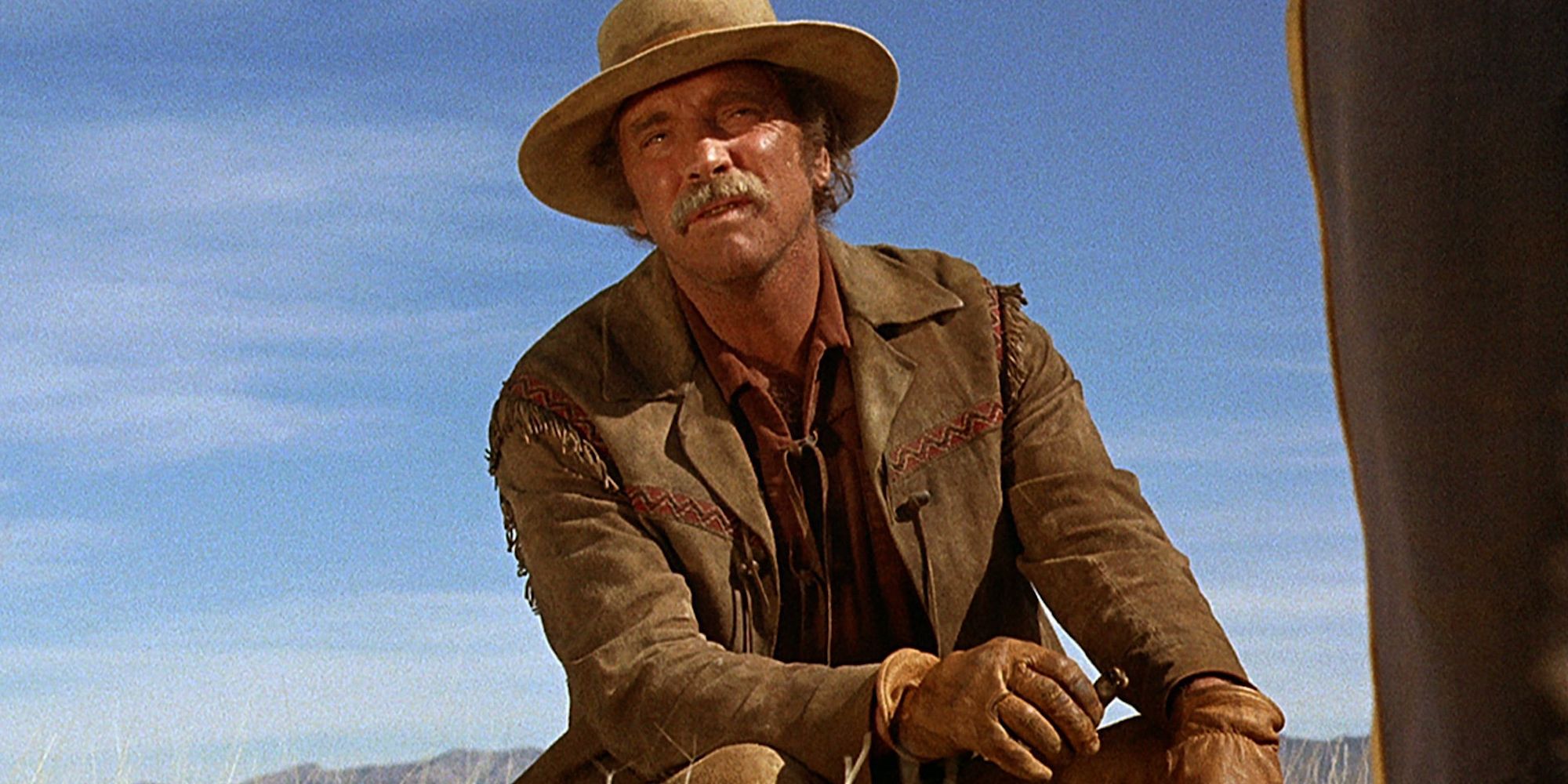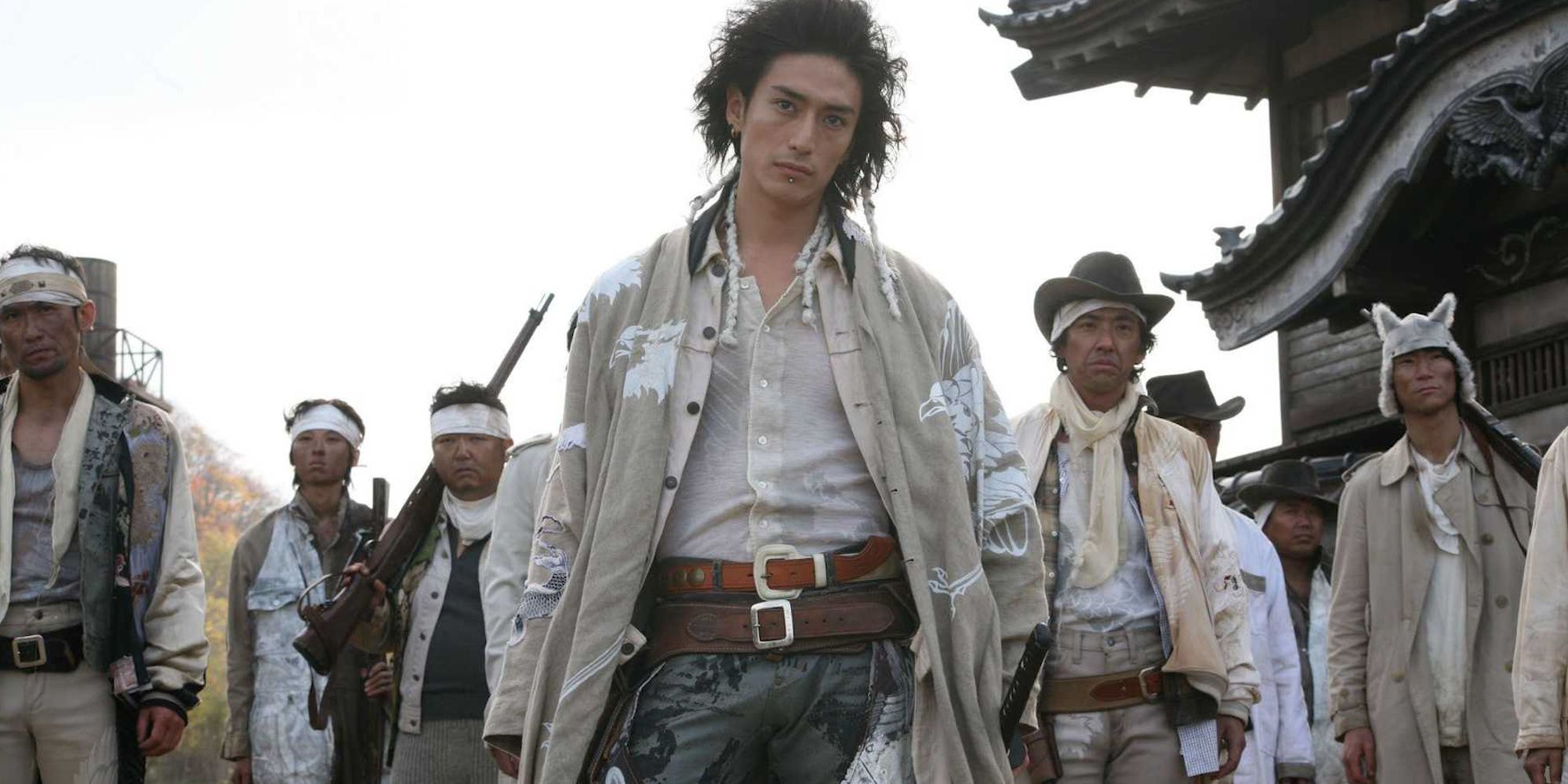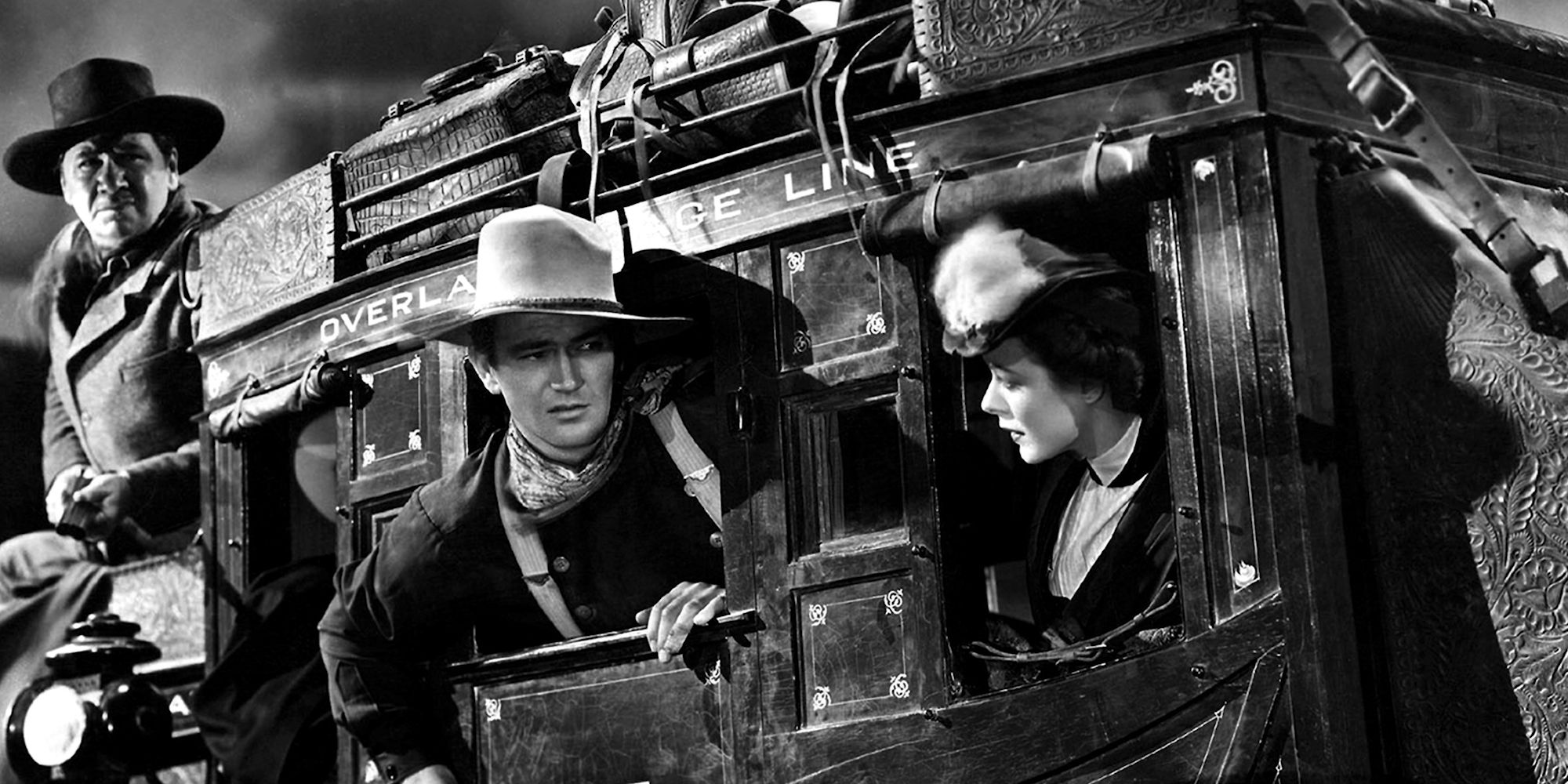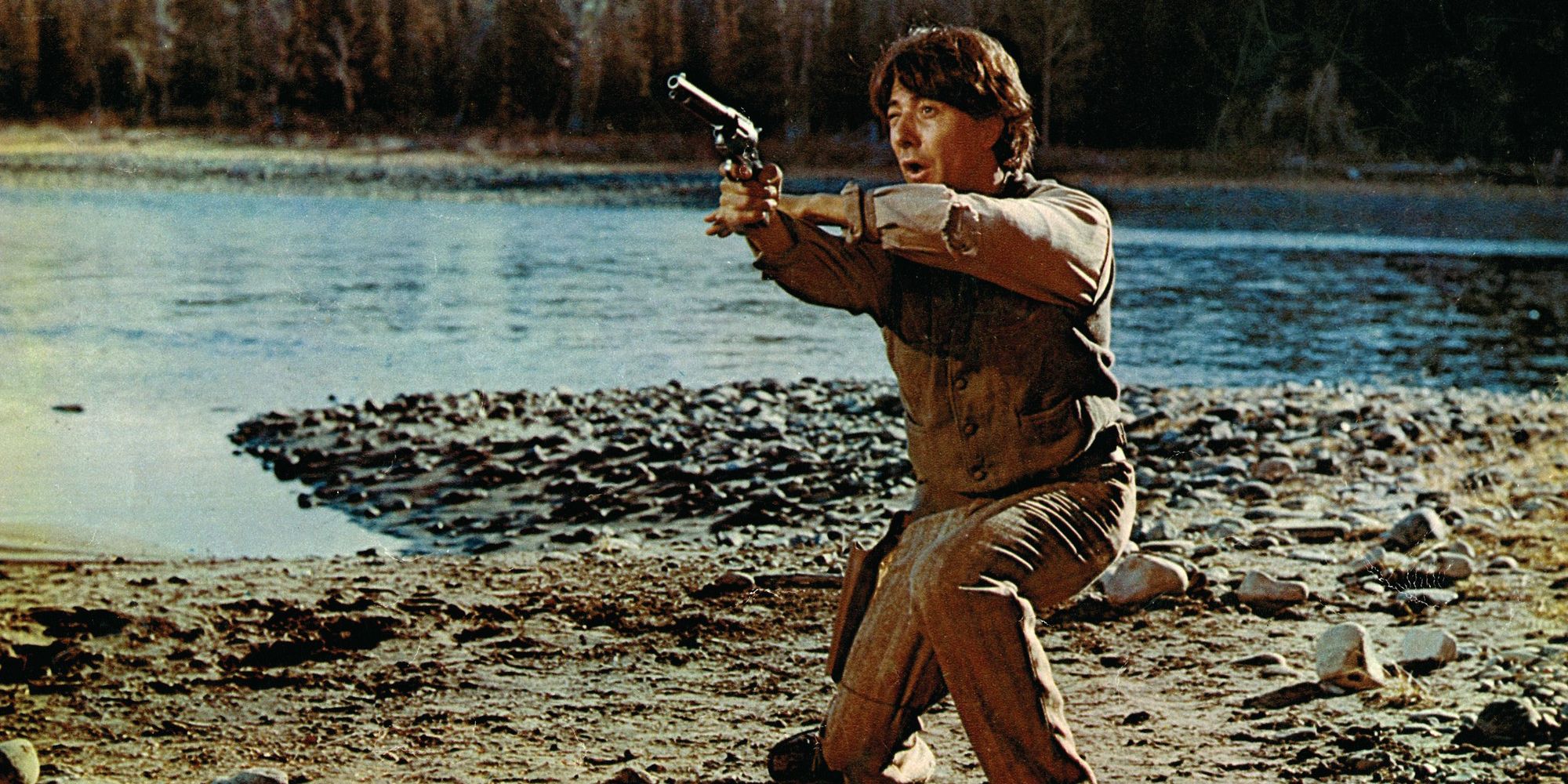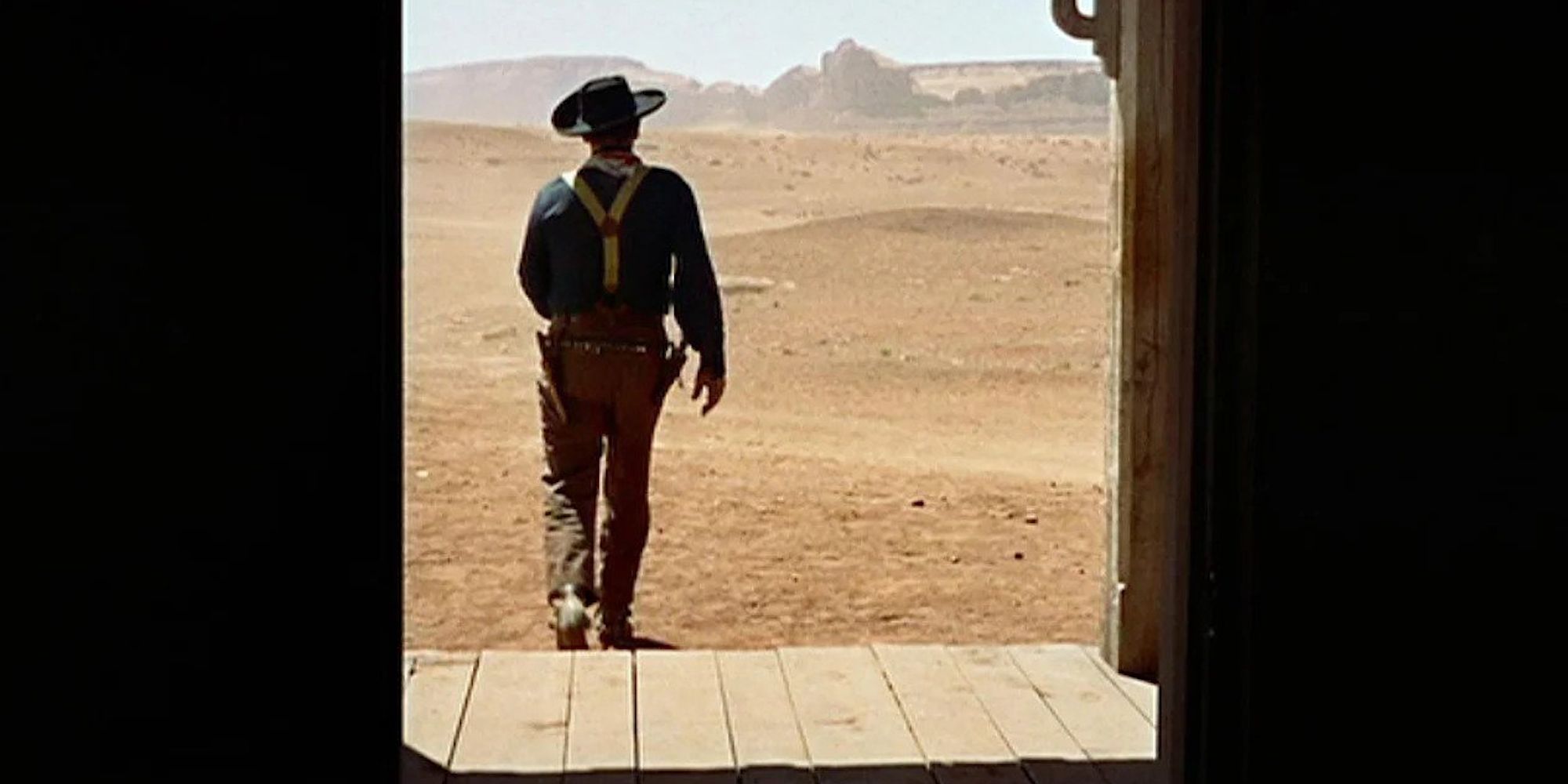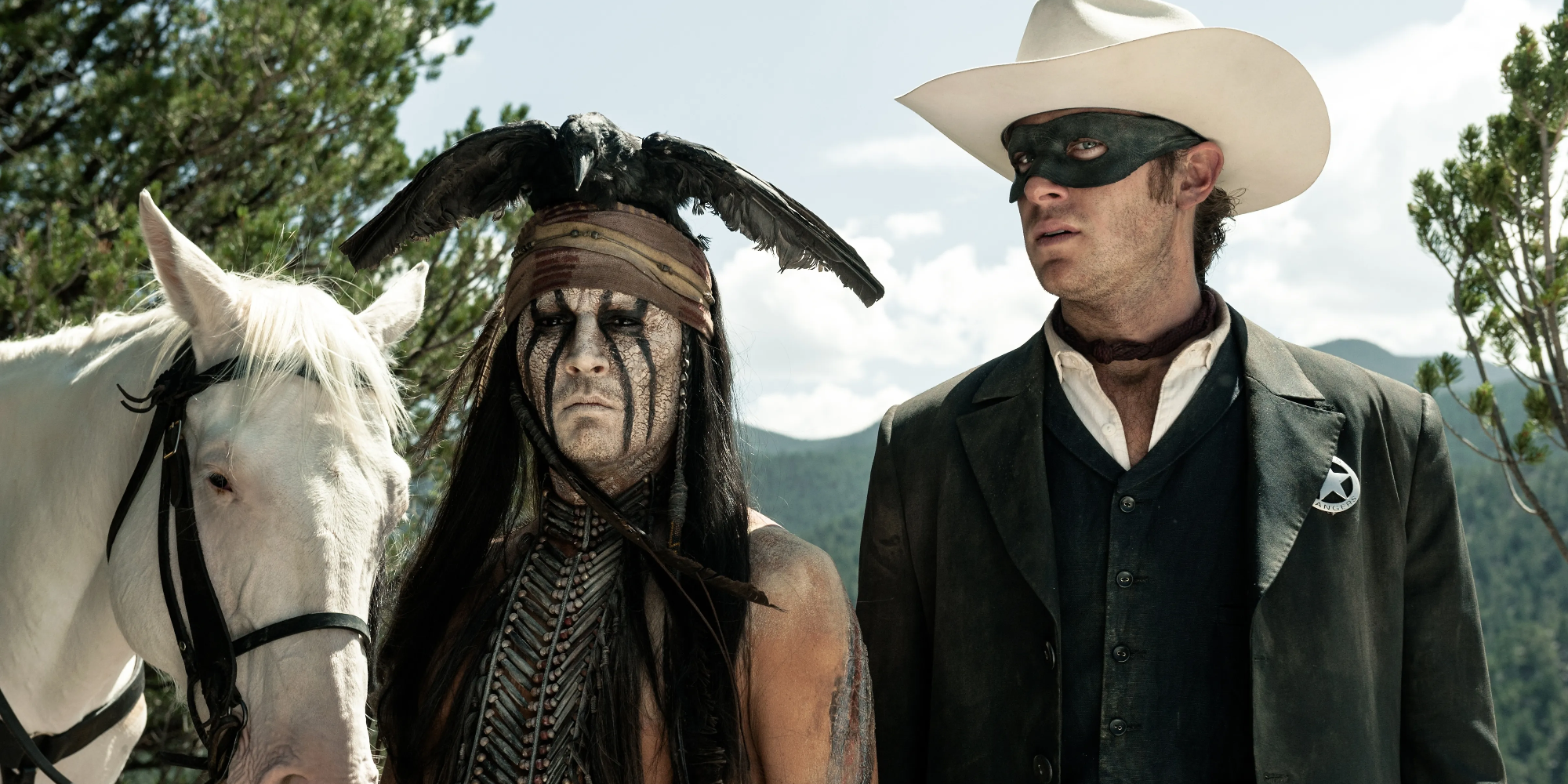Quentin Tarantino loves Westerns. He grew up in the genre and is on the record as saying that Sergio Leone's The Good, the Bad, and the Ugly is his all-time favorite movie. Not only has Tarantino directed two Westerns of his own, but almost all his movies have Western elements or could be described as Western stories in a non-Western setting. For instance, QT has called Inglourious Basterds "my spaghetti Western but with World War II iconography." Pulp Fiction is basically the tale of two bounty hunters, except they live in '90s L.A. rather than the American frontier.
It's plain to see that westerns have shaped Tarantino deeply as a storyteller. Tarantino has praised and referenced scores of westerns over the years, and many of them provide an insight into his creative sensibilities. Here are some of his most entertaining recommendations, which many viewers might not have seen.
'The Hellbenders' (1967)
A few years after the Civil War, this gritty western follows Colonel Jonas (Joseph Cotten), an unrepentant Confederate, and his sons, who attack a group of Union soldiers transporting a large sum of cash. They then try to smuggle the money across the Southwest in a coffin, hoping to use it to re-establish the Confederate army.
The Hellbenders was directed by Spaghetti Western legend Sergio Corbucci, known for his ultra-violent movies. "The great thing is, this is a Western with no heroes in it. Everybody is the bad guy," Tarantino has said. "There’s a gal in it who’s more of a victim, but everybody is f---ed-up."
'Winchester '73' (1950)
James Stewart stars in this film as a cowboy hunting down the outlaw Dutch Henry Brown (Stephen McNally), with whom he has a score to settle. At the same time, the narrative follows a prized Winchester '73 rifle as it passes from one ill-fated owner to the next—kind of like the Elder Wand in Harry Potter.
The role redefined the public perception of Stewart, and he would go on to make six more Westerns with director Anthony Mann. "Mann is one of my favorite Western directors and this is his best movie by far," Tarantino says.
'Django' (1966)
This film follows the adventures of a Union soldier turned drifter (Franco Nero) who becomes entangled in a feud between a Confederate paramilitary group and a band of Mexican revolutionaries. It might be Sergio Corbucci's most iconic western. Indeed, it spawned countless imitators: over 30 films about the Django character have been made, although most are unofficial. Tarantino's own Django Unchained is a play on this, and Nero has a cameo in the film. Tarantino has praised Django and other Westerns of that era for how they evolved with society and reflected the spirit of the times.
"The Westerns of the '50s definitely have an Eisenhower, birth of suburbia and plentiful times aspect to them," he has said. "Consequently, the late '60s have a very Vietnam vibe to the Westerns, leading into the '70s. And by the mid-'70s, most of the Westerns literally could be called 'Watergate Westerns,' because it was about disillusionment and tearing down the myths that we have spent so much time building up."
'Navajo Joe' (1966)
"I want a dollar a head from every man in this town for every bandit I kill." Navajo Joe is another movie from director Sergio Corbucci, this time starring Burt Reynolds as a Navajo man who sets out to take revenge on a gang of bandits who massacred his tribe.
"This is one of the greatest revenge movies and has one of Morricone’s most memorable scores," Tarantino has said. In particular, he calls Reynolds a "one-man-tornado onslaught” and says that the character influenced Django Unchained. QT also praised the film's dark tone, saying that Corbucci's vision of the Wild West is "the most violent, surreal, and pitiless landscape of any director in the history of the genre."
'Ulzana's Raid' (1972)
Burt Lancaster stars in this bleak film by director Robert Aldrich as Lieutenant McIntosh, an aging Army Scout ordered to track down the Apache war chief Ulzana (Joaquin Martinez), who has been raiding European settlements in Arizona. The film has also been interpreted as a commentary on the Vietnam War. Screenwriter Alan Sharp said Ulzana's Raid was "an attempt to express allegorically the malevolence of the world and the terror mortals feel in the face of it."
“Ulzana’s Raid is hands down Aldrich’s best films of the seventies, as well as being one of the greatest Westerns of the seventies,” Tarantino says. "One of the things that makes the movie so remarkable is it isn’t just a Western; it combines the two genres that Aldrich was most known for, Westerns and war films."
'Sukiyaki Western Django' (2007)
This one's a bit of a cheat since Tarantino acts in it, but it's too entertaining to leave off the list. Sukiyaki Western Django is a Wild Western/martial arts hybrid from Japanese cult director Takashi Miike. It's an homage to the work of Sergio Leone and Sergio Corbucci, but also riffs on a Japanese civil war that took place centuries ago. In this regard, it brings the Western full circle back to Japan, as both Leone's Dollars trilogy and Corbucci's Django were loosely based on Akira Kurosawa's Yojimbo.
Tarantino has a humorous cameo in the film as a Clint Eastwood-esque character. "I've always loved Japanese films so much, and so it’s always been a desire of mine to actually work in a Japanese movie for the Japanese film industry," he has said, explaining his decision to appear in the film. "To see what it’s like, and the differences, because I always just embrace stuff like that. But to actually do it with what I consider one of the greatest directors living today, Miike-san, is actually a dream come true."
'Stagecoach' (1939)
Stagecoach is an early John Ford project and the film that established John Wayne as a Western star. It follows a group of strangers traveling by stagecoach through dangerous Apache territory, who soon find themselves in a fight for their lives.
Stagecoach was a huge influence on The Hateful Eight. The opening scene of Tarantino's movie is very similar to the beginning of Stagecoach, even down to the shots. Both films revolve around strangers trapped together, with suspicions running rampant and Civil War tensions simmering beneath the surface.
'Little Big Man' (1970)
Dustin Hoffman stars in this Western as a man who was rescued by members of the Cheyenne nation as a boy and raised among them. He goes on to become a gunslinger, and later serves under General Custer, but turns against the troops when they start harming women and children. On paper, Hoffman doesn't seem like the best fit for a Western, but he actually does a terrific job.
Little Big Man is regarded as one of the earliest revisionist Westerns. It broke with genre convention by emphasizing the mistreatment of Native Americans, especially by the United States Cavalry. Some have also interpreted it as an allegory about the Vietnam War. “I’m a big fan," QT has said of it. "This has a kind of a sister kinship to Django Unchained."
'The Searchers' (1956)
This classic Western is the signature film by director John Ford, perhaps the leading Western director of the 1950s. It stars John Wayne as a middle-aged Civil War vet who spends years looking for his niece (Natalie Wood) who was abducted by Comanche raiders.
The Searchers is widely regarded as one of the greatest Westerns and has been highly influential. It even inspired the loot train attack in the fourth episode of Game of Thrones season 7. While Tarantino has criticized some aspects of the movie, he has also paid homage to it on multiple occasions. For example, he recreates the closing shot of The Searchers in both Kill Bill and Inglourious Basterds.
'The Lone Ranger' (2013)
Gore Verbinski directed this lighthearted Western, based on the iconic character. Armie Hammer plays John Reid, the titular hero, while Johnny Depp was cast (controversially) as his Native American companion Tonto. The film explores Reid's transformation from a scrupulous young lawyer to a gunslinging legend.
The Lone Ranger was a box office flop and received mostly negative reviews, but Tarantino was a big fan. "The first forty-five minutes are excellent [...] the next forty-five minutes are a little soporific," Tarantino says. "Then comes the train scene—incredible! When I saw it, I kept thinking, 'What, that's the film that everybody says is crap? Seriously?"

